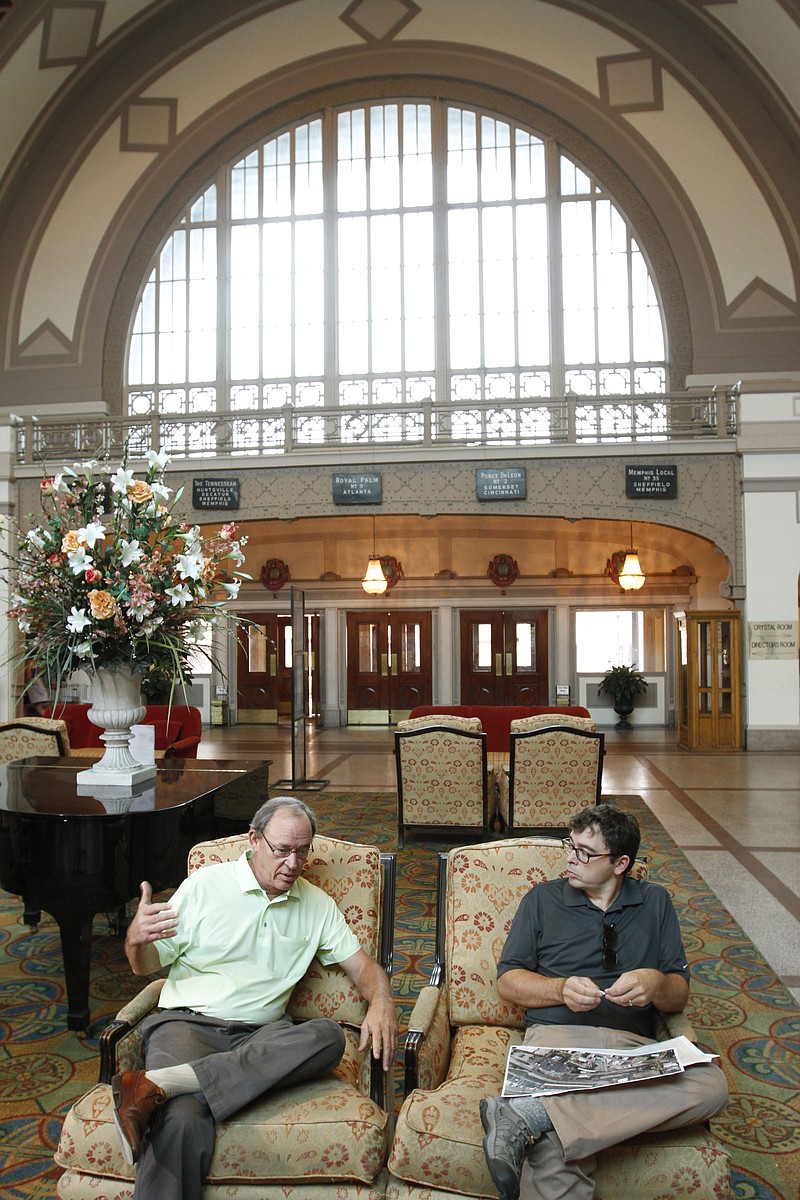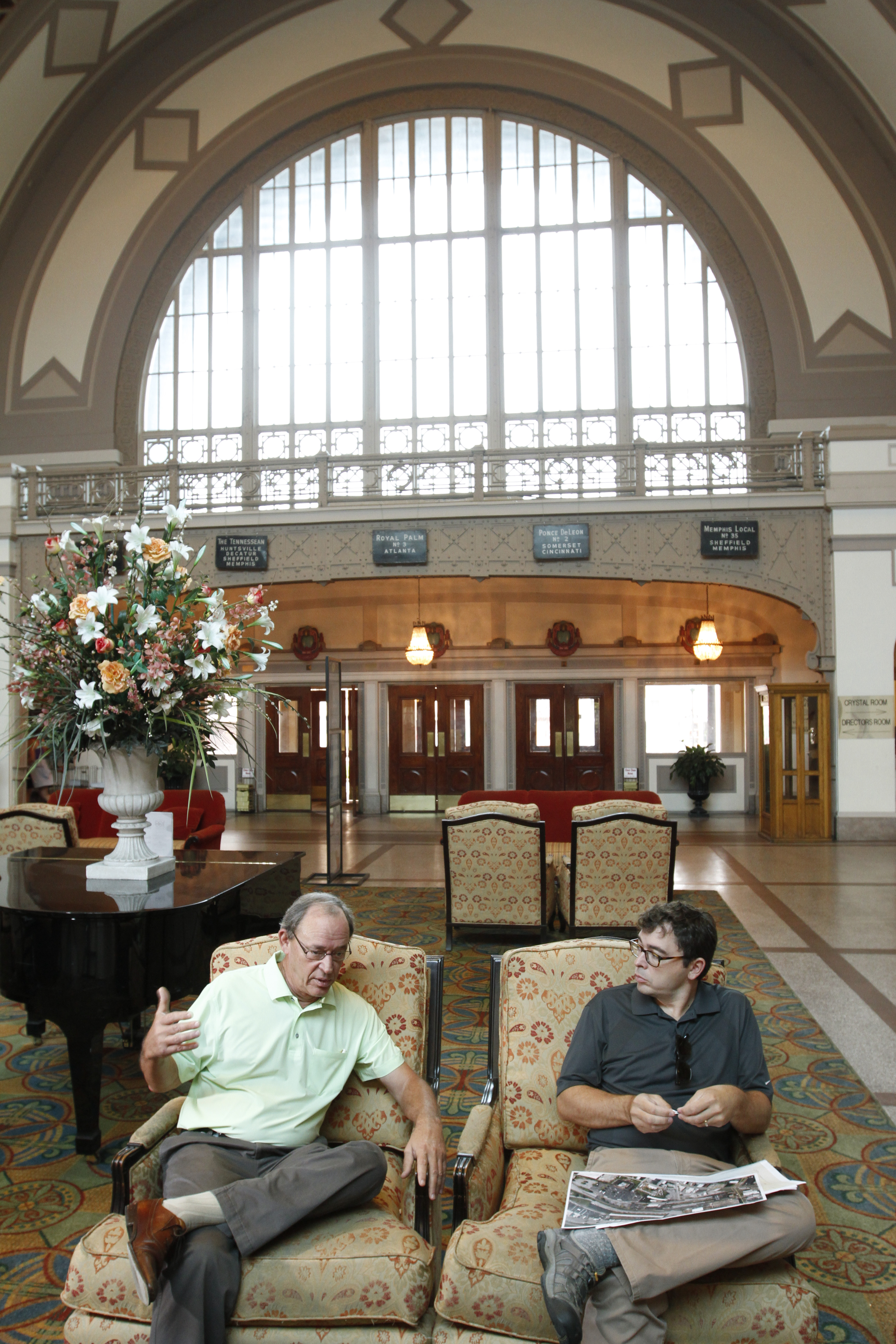TAXES AND RENT
Surrounding cities // millage tax rate // average monthly efficiency rent Atlanta // 4.5341 // $717 Chattanooga // 5.0742 // $679 Knoxville // 5.0457 // $774 Nashville // 4.516 // $851 Source: River City Company, and Center for Housing Policy - Fair Market Rents 2014 HOW THEY VOTED Yes Greg Beck Randy Fairbanks Joe Graham Marty Haynes Warren Mackey Jim Fields No Chester Bankston Tim Boyd Sabrena Smedley
The much-delayed and much-discussed tax break for the Chattanooga Choo Choo's apartment conversion only needs one more blessing, from the city's housing board, after Hamilton County commissioners Wednesday approved the so-called housing's payment-in-lieu-of-taxes agreement.
The city cleared the project last week.
Commissioners voted 6-3 to pass the 16-year tax break to convert more than 90 rooms in the hotel into 350-square-foot studio apartments to be rented below market rate.
But not before Commissioner Tim Boyd railed for more than 40 minutes against the Choo Choo PILOT agreement, and the direction of the River City Company-led housing program in general.
SMALL SPACE, BIG RENT
Citing a litany of documents including state law, Chattanooga City Council resolutions and news articles, Boyd said the tax break program is intended for multi-family, affordable housing.
The term "workforce housing" is a misnomer in this case, according to Boyd. He said the $705-a-month units are more like student housing or extended-stay hotel rooms, both of which are specifically disqualified from the city PILOT program.
"We have a lot of extended-stay hotels in my district, with similar square footage. If you want to go see them, I would direct you to Exit 1," Boyd said.
But River City Company President and CEO Kim White said Boyd didn't have his facts straight.
Multi-family generally just means multiple units in one building. And school purpose housing units are specifically defined as four-or-more-bedroom units with communal space and are rented at $500 to $600 a bed.
But names aren't important, she said. River City is doing what the local governments asked it to do: Promote downtown housing developments -- and specifically address a demand for small, single-unit apartments to attract young professionals.
"The trend is for smaller units, that's what these young techies want. You can call these [units] many things. But there is an income component for the PILOT," White said.
According to the housing program, developers have to rent 20 percent of their rooms to residents who make 80 percent of the median county income or less, as defined by the U.S. Department of Housing and Urban Development.
For a single person in Hamilton County, that number is at or below $30,900 a year.
And the rents for said units have to be set at or below 30 percent of that salary, or $772.50 a month, without utilities.
In the Choo Choo's case, the hotel is making 95 of 97 apartments fit the criteria, well more than 20 percent. And rents are set at $704, with included utilities bringing the monthly rent to about $800.
That's high for 350 square feet, but White says that's what the market wants.
"There are some people who will spend more on housing downtown because transportation cost is less," White said. "We've only had nine housing PILOTs in 13 years. Yes, the market has shown that there is lots of demand. And if we don't act, we are not going to capture that demand."
TAX BREAKS BROKEN?
Boyd was not the only one to speak against the agreement. Tea Party President Mark West and others told commissioners to vote the tax break down.
"If demand is so strong that we can't keep up with it, then why are you giving my money away? Why are you giving the taxpayers' money away?" West asked.
White's response is no money's being given away. The Choo Choo's total property taxes for the apartment property will increase from $32,000 a year to $42,000 a year.
Its city and county taxes would be frozen at the current rate and assessment for 12 years, but it would still pay its full portion of school taxes, she said.
However, based on the $4 million improvements to the property, the county general fund would be missing out on about $10,000 a year in that time.
After the 12-year period, there will be a four-year phase-in during which the Choo Choo's tax bill would gradually increase in 20 percent increments until it was at 100 percent of its tax burden at year five.
NO PILOT, BIG PROBLEM
White said that without the tax-break program -- which was designed by an appointed task force and approved by the city and county governments -- developers wouldn't build this kind of housing.
"There are a lot of developments coming to downtown, and they are not going to ask for a PILOT, because studio rents are going to be $1,100 a month," she said.
Or, developers won't come at all, according to Commissioner Marty Haynes.
The tax rate in Hamilton County is higher than in surrounding cities, but rental rates are lower. Haynes said developers will build where they make the most money.
And that's what apartment brokers and real estate agents told commissioners last week at their agenda session. In fact, they told commissioners to consider lowering the downtown tax rate overall.
"Our taxes are higher than Nashville for our downtown, higher than Knoxville. Our rents are lower than parts of Nashville or Knoxville. That's something to consider now and down the road when we are trying to bring economies of scale to our downtown area," said apartment broker Marcus Lyons.
On Wednesday, Boyd called housing PILOT agreements "a tool in the toolbox" and said they should at least be reserved for areas that need revitalization.
"In this case, the toolbox is sitting in the parking lot of the Choo Choo, which is about a mile and half west of where we need PILOTs," Boyd said. "If this was at the Glass Street Initiative, at Main Street and Dodds Avenue, I'd say 'yes.' But at the Choo Choo, I say 'no.'"
Contact staff writer Louie Brogdon at lbrogdon@timesfreepress.com, @glbrogdon on Twitter, or at 423-757-6481.

